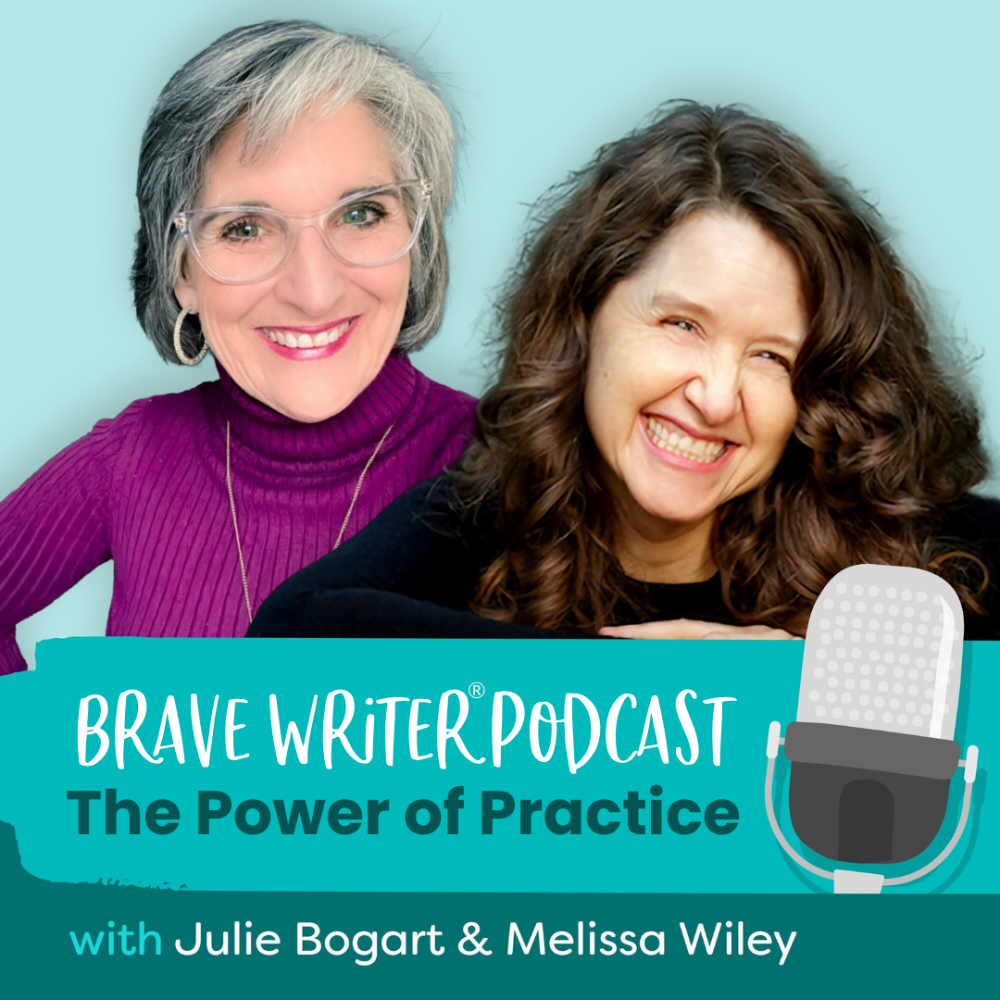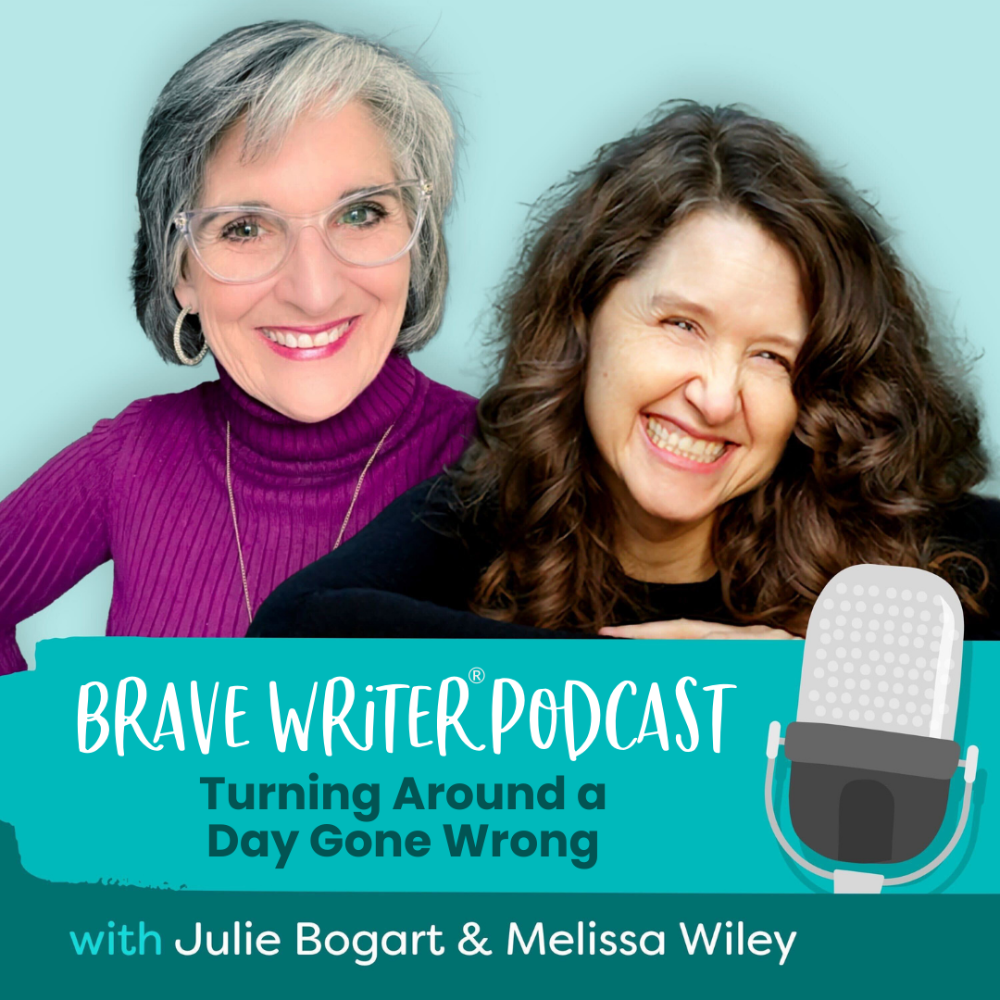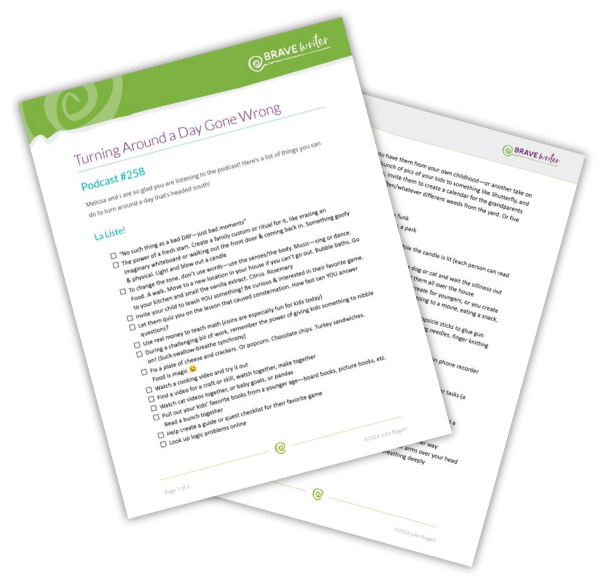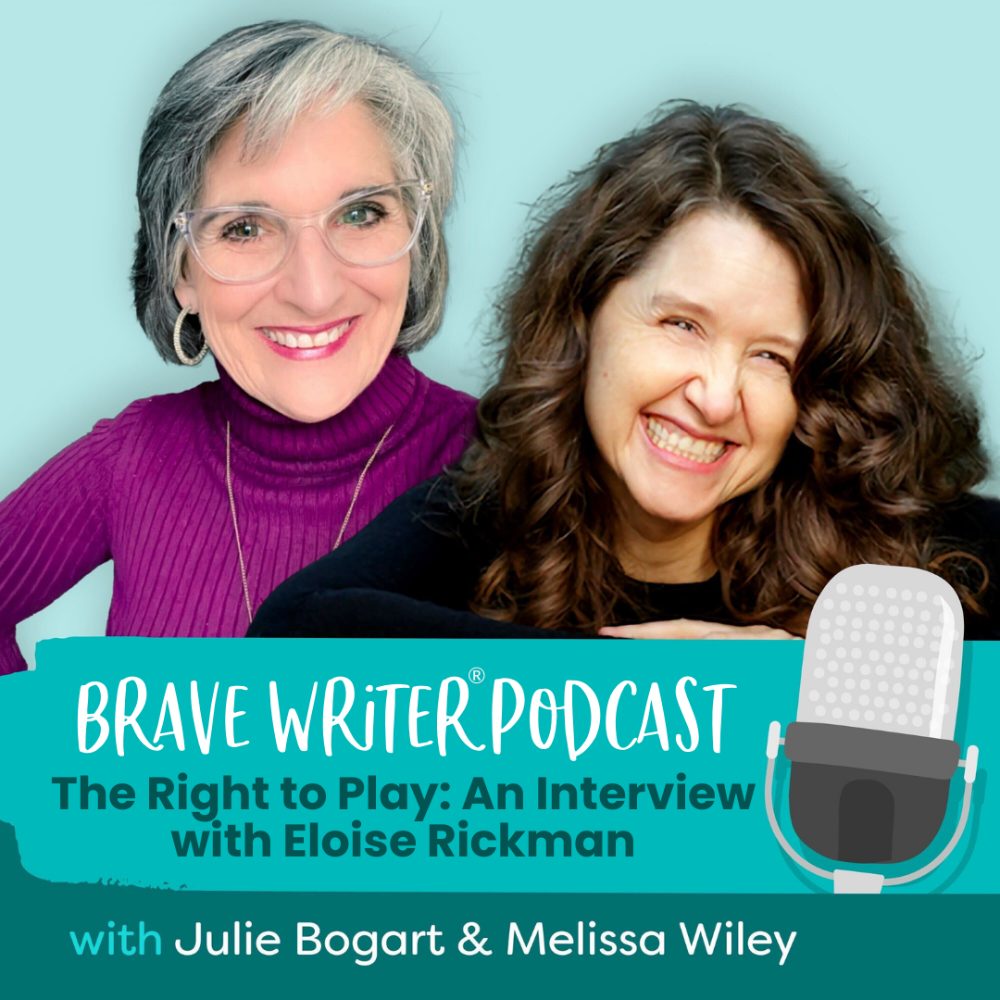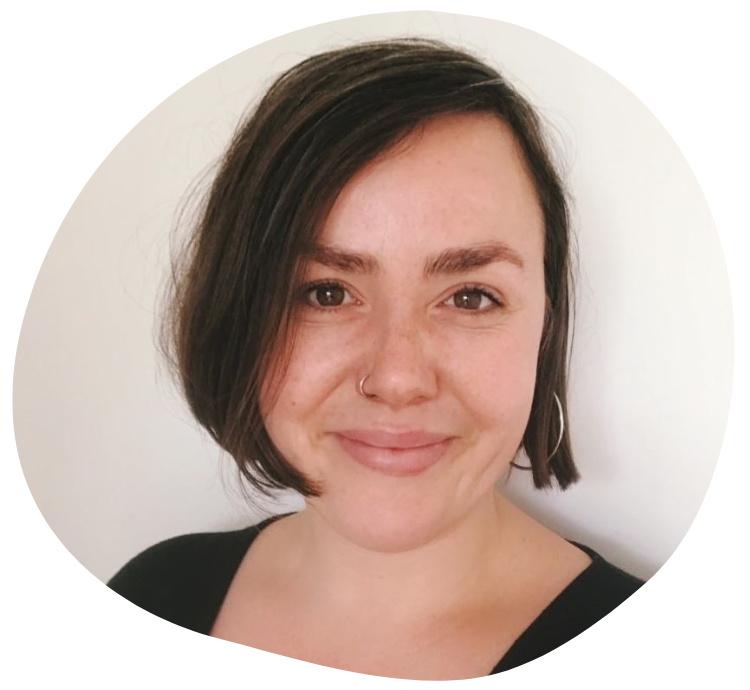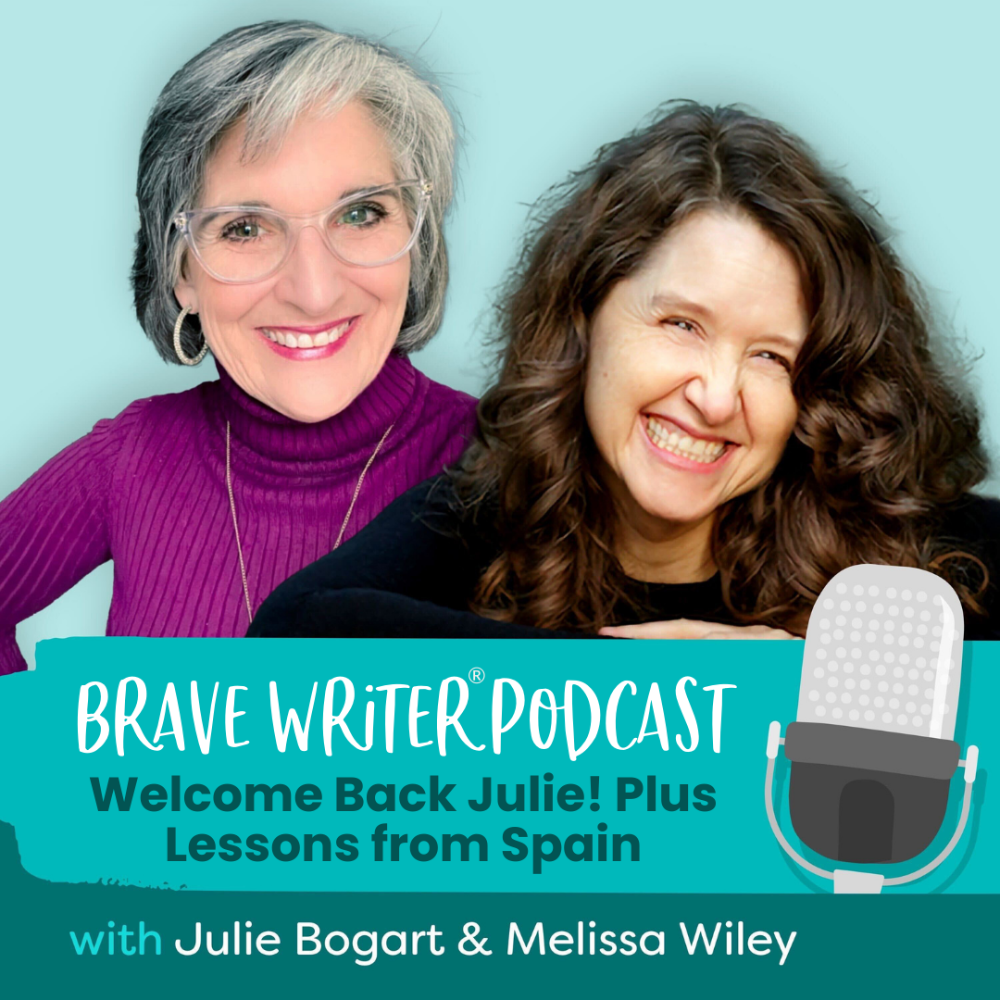
Leaves changing color, evenings getting chillier—autumn is a wonderful time of the year to turn our attention toward the natural world around us. Today’s Brave Writer podcast episode is all about how to facilitate nature study for your kids. We:
- cover resources that can help you on your journey,
- give you specific practices you can try out with your family,
- and, most importantly, dig into why nature study is so beneficial to educational development and well-being.
Remember, if you have nature study projects that you have really enjoyed, please share them with us!
Show Notes
Nature studies are wonderful intersections of art and science. They help us connect with the living, dynamic beings all around us. They have a deep history in education and human development. Helping your child get involved in these practices can provide them with the lifelong skills of observation and inquiry.
Resources for Nature Studies
Charlotte Mason, a 19th-century educator beloved by the Brave Writer community, wrote extensively about nature studies for children. The Handbook of Nature Study is a wonderful resource written by Anna Botsford Comstock in 1911 and is widely available today.
For more recent books, check out Ginny Yurich’s 1000 Hours Outside, Christina Bjork’s Linnea’s Windowsill Garden, and Richard Louv’s The Last Child in the Woods.
There are also digital tools that can aid in your family’s modern nature studies. The “Plant Snap” and “Merlin Bird ID” apps can help quickly identify plants and wildlife. Many large urban areas have digital tree maps you can use to explore the city. Local soil conservation districts and nurseries usually have a ton of accessible information about your local environment.
Nature Study Practices
Depending on your kids’ ages and interests, you can choose different natural study practices that fit them best. For very young kids, you can just keep a weather calendar where they use stamps and stickers to note the weather of the day. For teenagers, you can try constructing a “cold frame,” essentially a simple greenhouse.
Whether you observe a single tree over time with your kid, or take them to local class, you can get them interested in the natural world around them.
Nature journaling, specifically, can be a lifelong gift. Kids (and adults) can fill journals with written or illustrated descriptions of what they observe in nature and what questions those observations bring to the surface.
Right now, Melissa’s nature study project is building a “bug snug” so that pollinators can cozy up over winter and survive until spring. Do you have a nature study project that you have really enjoyed? If so, let us know!
Resources
- Start a free trial of CTCmath.com to try the math program that’s sure to grab and keep your child’s attention.
- For all the books mentioned in this episode, check out the Brave Writer Book Shop.
- Learn more about the 1000 Hours Outside platform.
- Learn more about nature studies at JohnMuirLaws.com.
- Check out the Brave Writer Literature & Mechanics programs.
- Read all Brave Writer class descriptions here.
- Check out the Brave Writer class schedule for Fall.
- Learn more about Brave Writer 101.
- Sign up for our Text Message Pod Ring to get podcast updates and more!
- Send us podcast topic ideas by texting us: +1 (833) 947-3684
Connect with Julie
- Instagram: @juliebravewriter
- Threads: @juliebravewriter
- Twitter: @bravewriter
- Facebook: facebook.com/bravewriter
Connect with Melissa
- Website: melissawiley.com
- Substack: melissawiley.substack.com
- Instagram: @melissawileybooks
- Twitter: @melissawiley
Produced by NOVA Media


